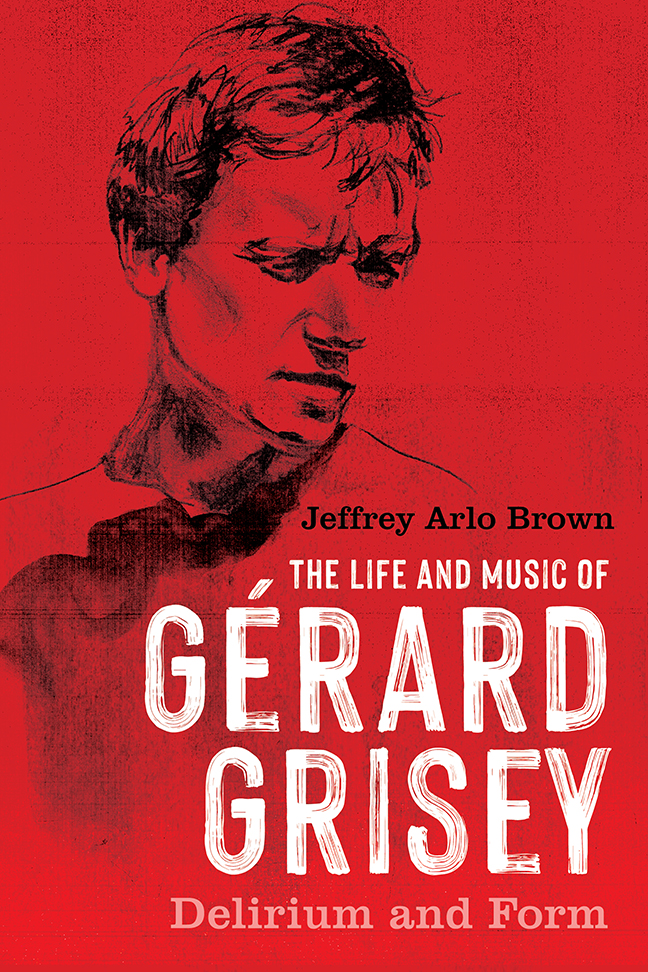Book contents
- Frontmatter
- Contents
- List of Illustrations
- Acknowledgments
- One The Lost Voice (1946–61)
- Two The Carnal Shell (1961–65)
- Three The Rhythm of Love (1965–67)
- Four Exchange Beyond Language (1968–70)
- Five The Silence that Attracts (1970–72)
- Six The Sensual Embrace (1972–74)
- Seven Ultimate Fusion (1974–78)
- Eight Astarte (1978–79)
- Nine Extreme Pleasure, Extreme Pain (1980–82)
- Ten The Grains of Sound (1982–86)
- Eleven Absolute Love (1986–88)
- Twelve Seduced by the Star (1988–91)
- Thirteen Suggestions of the Infinite (1991–96)
- Fourteen Nut (1996–98)
- Fifteen Berceuse
- Appendix: Recordings of Music by Gérard Grisey
- Bibliography
- Index
Thirteen - Suggestions of the Infinite (1991–96)
Published online by Cambridge University Press: 17 December 2023
- Frontmatter
- Contents
- List of Illustrations
- Acknowledgments
- One The Lost Voice (1946–61)
- Two The Carnal Shell (1961–65)
- Three The Rhythm of Love (1965–67)
- Four Exchange Beyond Language (1968–70)
- Five The Silence that Attracts (1970–72)
- Six The Sensual Embrace (1972–74)
- Seven Ultimate Fusion (1974–78)
- Eight Astarte (1978–79)
- Nine Extreme Pleasure, Extreme Pain (1980–82)
- Ten The Grains of Sound (1982–86)
- Eleven Absolute Love (1986–88)
- Twelve Seduced by the Star (1988–91)
- Thirteen Suggestions of the Infinite (1991–96)
- Fourteen Nut (1996–98)
- Fifteen Berceuse
- Appendix: Recordings of Music by Gérard Grisey
- Bibliography
- Index
Summary
In January 1991, Mireille Deguy, a dark-haired, fine-featured mezzo-soprano of Moroccan-Jewish heritage, went to the Maison de Radio France to listen to a concert at the Présence Festival of contemporary music. Deguy, an elegant woman with a certain warm formality, had studied voice in Aix-en- Provence in the south of France and in Lausanne, Switzerland. She worked with singers like the eminent German mezzo-soprano Christa Ludwig and studied at the Academy of the Opéra national de Paris, developing an interest in contemporary music.
Grisey was also at the Maison de Radio France that day, his head in the clouds. He had been overseeing the mix of a recording of Talea. But his mind was on something more ambitious: his massive new orchestral work, later to receive the title L’Icône paradoxale, for the Los Angeles Philharmonic.
When a mutual friend introduced Deguy to Grisey, she noticed his distraction, but also found him kind, and keenly interested in the singing voice. They discovered that they had a lot to talk about and began spending hours on the phone. “It was very simple, because I had the impression that he was someone I had already known for a long time,” Deguy said.
Within two months, Deguy and Grisey were together. “It happened very quickly,” Deguy said. “It was fate.”
But Grisey was still in a relationship with France Detry. Like Jocelyne, Detry was aware—and to a large extent reconciled—to the fact that Grisey was not the monogamous type. For Detry, it was important to grant Grisey the freedom to be with other women, first when he lived in Berkeley, then as he commuted between Brussels and Paris:
He liked to conquer the world, especially the world of women … I couldn't put Gérard in a cage. From the beginning I knew that. It was not an effort for me. Our relationship was built on that basis. When he was in Paris, he could do what he wanted. I told him, “As long as I don't have tele-phone calls from your girlfriends, as long as you don't bring me any disease—that was very important!—and when you’re in Paris it's your world, you’re free. But no telephone calls and no diseases.” Those were the two [requirements].
Like Jocelyne before, Detry remained a port in the storm of Grisey's erotic life.
- Type
- Chapter
- Information
- The Life and Music of Gérard GriseyDelirium and Form, pp. 231 - 257Publisher: Boydell & BrewerPrint publication year: 2023

